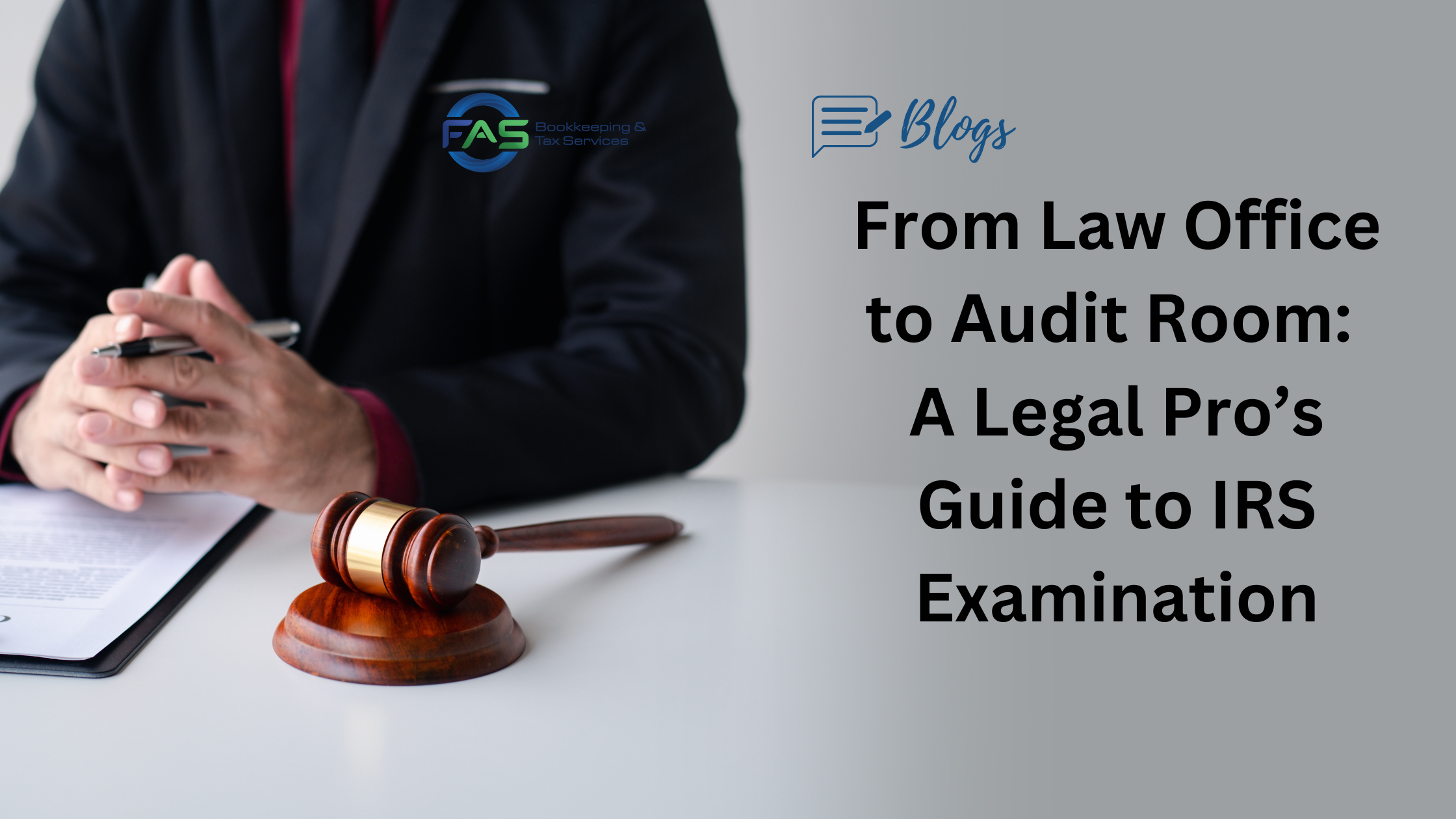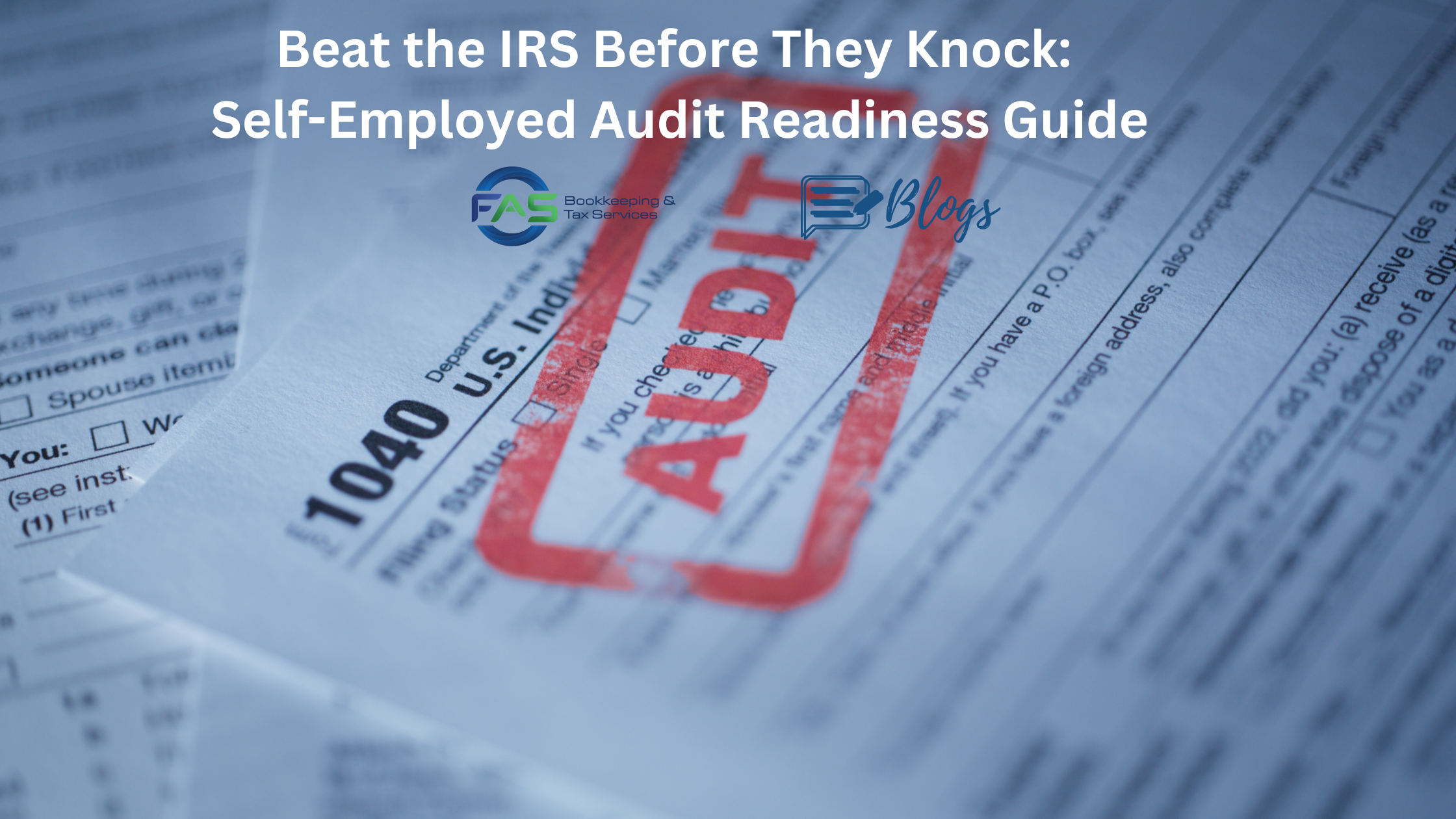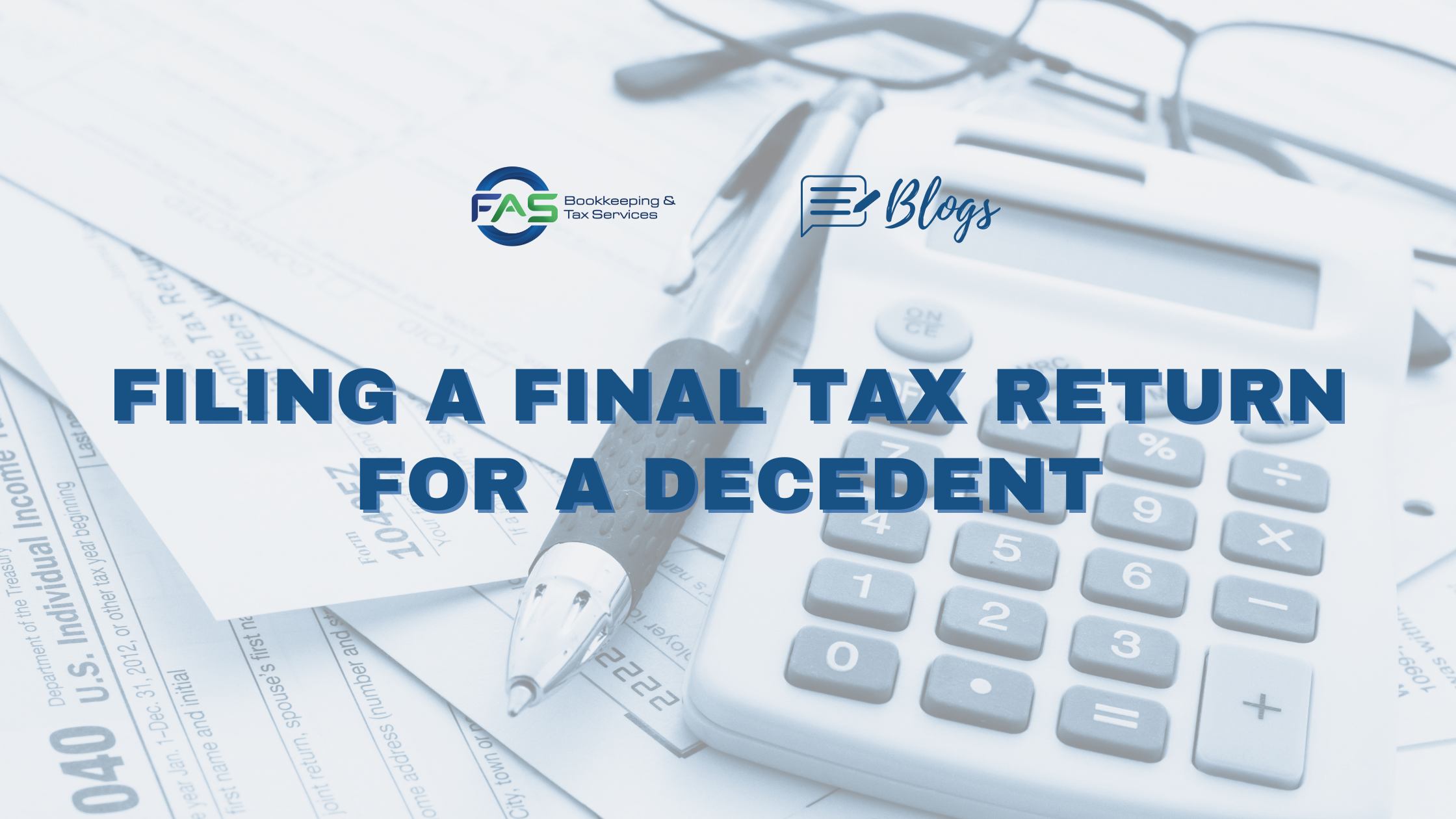Filing a Final Tax Return for a Decedent
When someone passes away, their surviving spouse or designated representative is required to file a final tax return on their behalf. Typically, the representative who files the final tax return for a decedent is specified in the testator’s will or chosen by a court. A personal representative may occasionally file the final return if there isn’t a surviving spouse or designated representative. The IRS doesn’t require any additional notification of the death save stating it on the final tax return.
Three Things Taxpayers Need to Know Before Filing the Final Tax Return for a Decedent:
- If a person doesn’t remarry within that year, the IRS considers them to have been married for the entire year that their spouse passed away.
- The surviving spouse is allowed to file as either married filing jointly or married filing separately.
- Unless the surviving spouse or representative receives a filing extension, the final return is due by the regular April tax date.
Who Signs the Return?
The surviving spouse or representative should adhere to the software’s instructions while submitting electronically in order to ensure that the proper signature and notation criteria are met. The filer should write “dead,” the deceased person’s name, and the date of death across the top of the paper returns. This person needs to sign the return:
Appointed representative. The return must be signed by an authorized representative. If it is a joint return, the surviving spouse must sign it as well.
Surviving spouse. If no chosen representative is named, the surviving spouse submitting a joint return should sign the form and write “filing as surviving spouse” in the signature area.
No appointed representative and no surviving spouse. If no appointed representative is named and there is no surviving spouse, the person in charge of the deceased individual’s property must file and sign the return as “personal representative.”
Other Documents to Include in Filing a Final Tax Return for a Decedent:
- If the representative was appointed by the court, please attach a copy of the court order confirming that appointment.
- Form 1310, Statement of Person Claiming Refund Due a Deceased Taxpayer, must be submitted with any refund claims made by representatives who are not court-appointed. This form does not need to be filled out by surviving spouses or representatives chosen by the court.
- The death certificate or any other form of death proof is not required by the IRS.
The filer must include payment with the return if tax is owed. They might be eligible for an IRS payment plan or installment agreement if they are unable to pay the full amount owed right away.
Qualifying Widow or Widower
After their spouse passes away, surviving spouses who have dependent children may be eligible to file as a Qualifying Widow(er) for two years. If they don’t itemize deductions, they can use the joint return tax rates and the highest standard deduction amount if they file under this filing status.
Questions?
If you have any queries regarding submitting a final tax return for someone who has passed away, don’t be afraid to get in touch with us. Give us a call at 713-855-8035 or email us at admin@fas-accountingsolutions.com.





